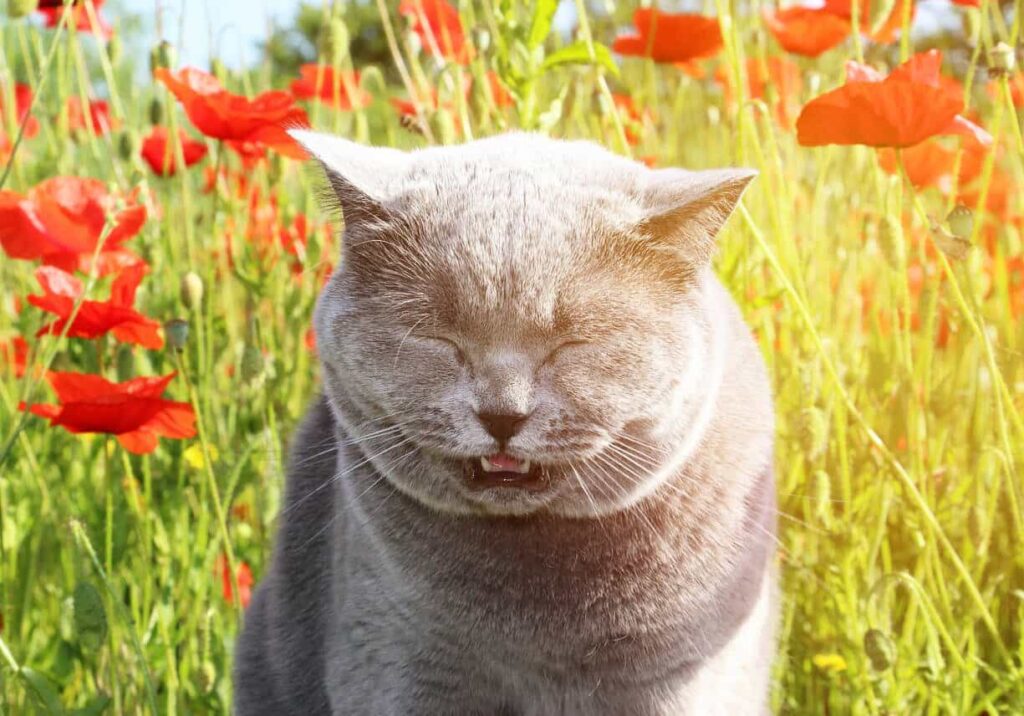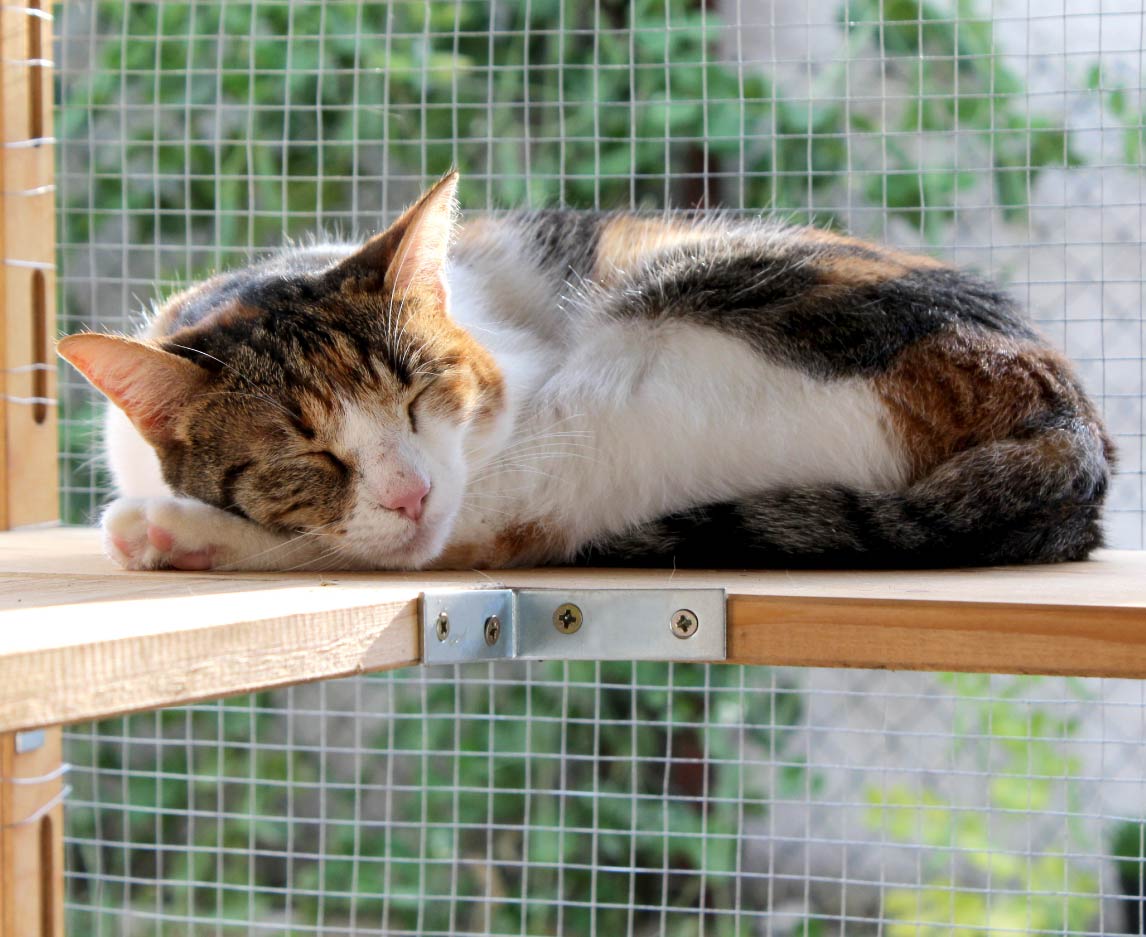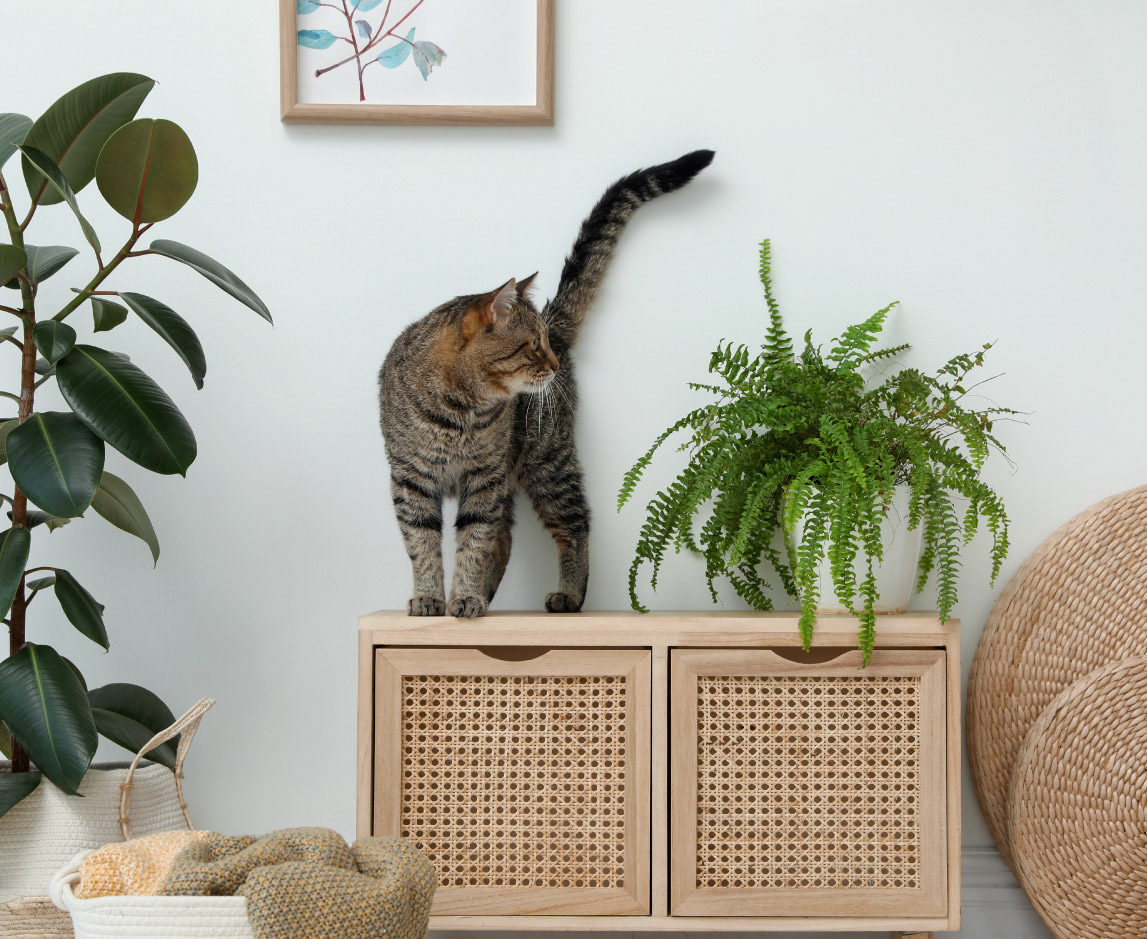A sneeze from your cat every now and then is common, but when does a simple “Bless you!” suffice and when should you be concerned?
Just like humans, there are different reasons why a cat may sneeze. The tickle in their nose may be due to environmental factors or it could be the result of an illness or infection. Read on for a close look at some of the causes, recommendations for when to take your cat to the vet and frequently asked questions.
6 Common Causes of Cat Sneezes
1. Environmental Factors
Cats may have tiny button noses but it’s easy for their nasal passages to become irritated by their environment. The occasional sneeze may be due to an irritant or allergen like:
- Household Dust
- Litter Box Dust
- Pollen
- Candles
- Perfume
- Cigarette Smoke
- Mold
- Cleaning Products
After a sneeze, check your cat’s surrounding area. Could incense or candles be the culprit? Or maybe you’ve switched to a new litter that creates excess dust? Also check for other symptoms that might be present. Fetch by WebMD notes that sneezing because of allergy-related reasons will likely be accompanied by itchy skin.
2. Dental Disease
What do dental disease and sneezing have in common? A cat’s dental roots are located right next to their nasal passages, so if their teeth become infected or if inflammation develops, their nose can become irritated. If you suspect your cat may have dental disease, PetMD advises bringing them to the vet, as this can be a painful condition.
3. Infections
Frequent sneezing that is accompanied by other symptoms may be a sign of one of the following infections:
- Upper Respiratory Infection (URI): Like the common cold in humans, URIs are a contagious feline illness. If your kitty has recently been adopted from a shelter, boarded while you were on vacation or around other cats that may have been sick, it’s possible that their sneezing could be a sign of a URI. A report from the Chicago Tribune notes that URIs can spread easily from cat to cat, especially if they are in a stressful or unfamiliar environment. Other symptoms of a URI can include coughing, discharge from the eyes or nose, excessive swallowing, lethargy and loss of appetite. Since URIs are contagious among cats, they require diagnosis and treatment by a veterinarian.
- Chronic Upper Respiratory Infections: If the symptoms of a URI last for several weeks or months, it’s considered chronic. A condition called chronic rhinitis can also develop if there is permanent damage to the cat’s immune system and nasal passages.
- Feline Herpes: Feline herpes is a virus that is also very contagious between cats. It is typically spread through contact with discharge from an infected cat’s mouth, nose or eyes. According to Fetch by WebMD, stress can cause a flareup of the virus and make transmission easier between cats. Other symptoms of feline herpes can include congestion, eye ulcers, loss of appetite and drooling.
- Feline Calicivirus: This virus can cause URIs and oral diseases, such as mouth ulcers that can affect a cat’s respiratory tract. Besides sneezing, the most common symptoms of feline calicivirus are conjunctivitis, congestion and discharge from the nose or eyes.
Feline herpesvirus and feline calicivirus are very common. In fact, VCA Hospitals says that these two conditions are responsible for 90% of all feline upper respiratory tract infections.
4. Inflammatory Issues
Rhinitis and sinusitis are inflammatory conditions that can be complications from a URI. Rhinitis is inflammation of the nose’s mucous membranes, while sinusitis is inflammation of the sinuses. These conditions will cause frequent sneezing and eye discharge, and you may notice that your cat is breathing through their mouth instead of their nose.
5. Vaccines
If sneezing is the result of an infection, your veterinarian may give your cat a nasal vaccine. While this can help ease their symptoms, it can also cause sneezing for a few days after it is administered.
6. Nasal Blockage
The tickle in your cat’s nose could be because of a piece of litter, catnip or dirt that may be stuck in their nasal passage. Sneezing usually helps to get the particle out, but if it remains stuck it could lead to a nasal infection.
When to See a Veterinarian
A sneeze every now and then is normal, but if it becomes frequent or other symptoms develop, your cat would benefit from a visit to the vet.
If you are monitoring your cat at home, Fetch by WebMD says to keep an eye out for these other symptoms:
- Wheezing or Coughing
- Yellow or Green Nasal Discharge
- Eye Discharge
- Drooling
- Fever
- Fatigue
- Decreased Appetite
- Weight Loss
- Enlarged Lymph Nodes
- Trouble Breathing
- Poor Coat Condition
- Diarrhea
When in doubt, it’s always best to take your cat to the vet for an expert assessment. They will perform a physical exam that includes evaluating your cat’s nose, eyes and mouth, and from there they will determine if imaging or lab tests are necessary.
Frequently Asked Questions
Q: How can I prevent my cat from sneezing?
A: The most important thing you can do is make sure your cat is up to date on all of their vaccinations as recommended by your veterinarian. If sneezing is the result of environmental factors like dust, candles or cigarette smoke, you should remove these irritants to help your cat breathe easy. If sneezing still persists, take your cat to the veterinarian for a checkup to determine the cause.
Q: Can I give my cat allergy medicine to stop their sneezing?
A: No. Do not give your cat any medications unless your veterinarian instructs you to do so. Human medications can be toxic to pets.
Q: What is the treatment for a sneezing cat?
A: Your veterinarian will determine the proper treatment for your cat. If the cause is due to an infection, they may prescribe antibiotics or anti-inflammatory medications. According to The Spruce Pets, your vet may check for underlying diseases if basic infection treatment doesn’t help your cat improve. Conditions like feline leukemia virus (FeLV) or feline immunodeficiency virus (FIV) can weaken a cat’s immune system.






